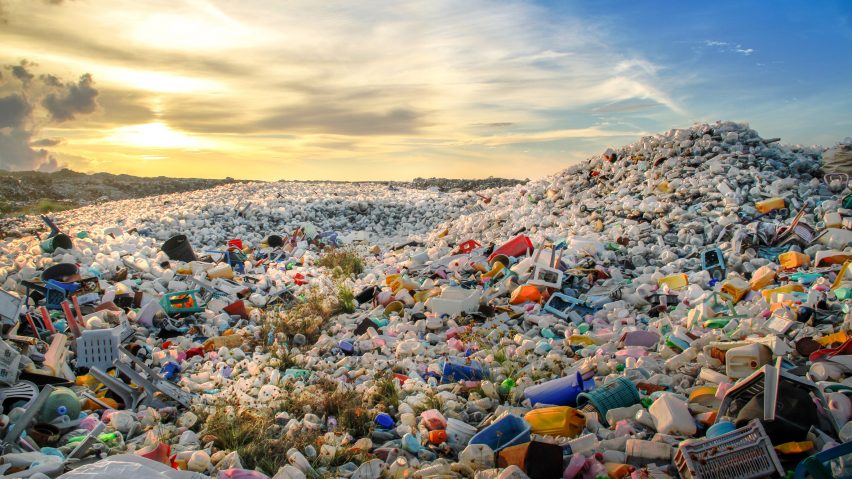
"A 60 per cent reduction in plastic is the bare minimum we need the world to do"
We need to end our use of plastics for the sake of the planet and human's health, writes the director of Earth Day's end plastic initiatives Aidan Charron.
Plastics have become ubiquitous in our lives, they are everywhere and unavoidable but it hasn't always been like that. They are relatively new materials and while they do have some benefits, they are overused! Why the hell do we need to wrap a peeled orange in a clamshell container? Who does that benefit?
This has to stop. We need to end plastics for the sake of human and planetary health. This is why we are demanding a 60 per reduction in the production of all plastics by 2040.
Production of plastic is twice as high as 20 years ago with no sign of slowing down
Like smoking and lead in the 20th century, we know so little about the over 15,000 chemicals that can make up plastics and regard them as harmless. Of those chemicals, over 4,200 are hazardous, while only 980 are regulated and the vast majority of the other 11,000 or so are just not studied or regulated at all.
Our use of plastics is still increasing, with production of plastic twice as high as 20 years ago with no sign of slowing down. If we continue at our current trends, plastic use will triple from current levels in less than 40 years.
We don't have the technology or ability to handle the waste we currently have, so what will happen in 2060 if we triple production? Pictures of choked waterways, ocean-floor littering and trashed public areas will be the norm – not to mention the massive health implications of plastic and its additive chemicals.
Currently, plastics contribute $250 billion to healthcare costs annually in the United States alone. This stems from the diseases caused by the many chemicals such as PFAS, bisphenols and phthalates, which provide the unique characteristics of each plastic.
It is clear we need to ween ourselves of plastic
Last year the Earthday.org team set out to analyze and produce a report that goes over the main health issues that arise from plastic use, specifically those we are seeing in infants and children. The information we found was staggering. Microplastics are bioaccumulating in our major organs, being found in human placentas, detected in breast milk.
It's scary enough that they are able to penetrate all of these places. But even worse, they are actively contributing to general and childhood cancer rates the world over, with phthalate exposure linked to a 20 per cent increase in childhood cancer.
I could dive into more, including how infertility rates are increasing because of decreased sperm quality, while plastics production has risen. But if what I've highlighted so far doesn't frighten you a bit, I don't know what will (maybe the mention of the decrease in male genitalia size).
It is clear we need to ween ourselves of plastic. So, why a 60 per cent reduction by 2040 and is this possible? In my opinion, it is not only possible but the bare minimum we need the world to do.
At present 50 per cent of all plastic is single-use and the majority of that is single-use packaging that is not recyclable. Globally only nine per cent of all plastics are recycled. In the United States, it's only five per cent.
We need a ban on single-use plastics, our throwaway culture is new and needs to go away.
We need a ban on single-use plastics, our throwaway culture is new and needs to go away. Reuse, reuse, reuse should be how we think about most things, especially plastic. If we eliminate single-use plastic, that's 50 per cent of our reduction right there, with only 10 per cent to go.
Looking backwards can be a great way to move forward and the call for reusability makes sense. We have existing materials that pose less of a risk to human health compared to plastics. Glass can be used again and again and even when it breaks, it can be melted down and remolded. Glass! One of the oldest human-manufactured products, let's utilize it like we were for millennia.
Technology is great, don't get me wrong. And some great products have come out as alternatives to plastic such as mycelium composite alternatives to certain packaging. But what happens if we technology our way into something worse than plastic? Something that has worse health effects than current plastics and their added chemicals.
They had their hay day and it's time to move beyond them
Let's move back to utilizing longer-lasting materials. Wood is regenerative, let's start using in places where plastic has taken over like in the building of furniture. Stop making our clothes from synthetic materials, that flake off microplastics into the air and waterways. Organic cotton, hemp, and wool grow back unlike plastic.
Once we start going for quality over quantity, we can start reducing our plastic production. We can get to a 60 per cent reduction in plastic. Two years ago, over 75 per cent of Americans wanted to see a reduction in single-use plastic, I suspect that number has grown with the attention plastics are getting in our media and with the advent of the Global Plastic Treaty.
It's time to call on our leaders to support the phase-down of plastics, they had their hay day, and it's time to move beyond them. Let's shoot for a 60 per cent reduction of production by 2040. We can do it, we just need those in power to listen to the vast majority of people who support it!
Aidan Charron is director of end plastic initiatives at Earthday.org.